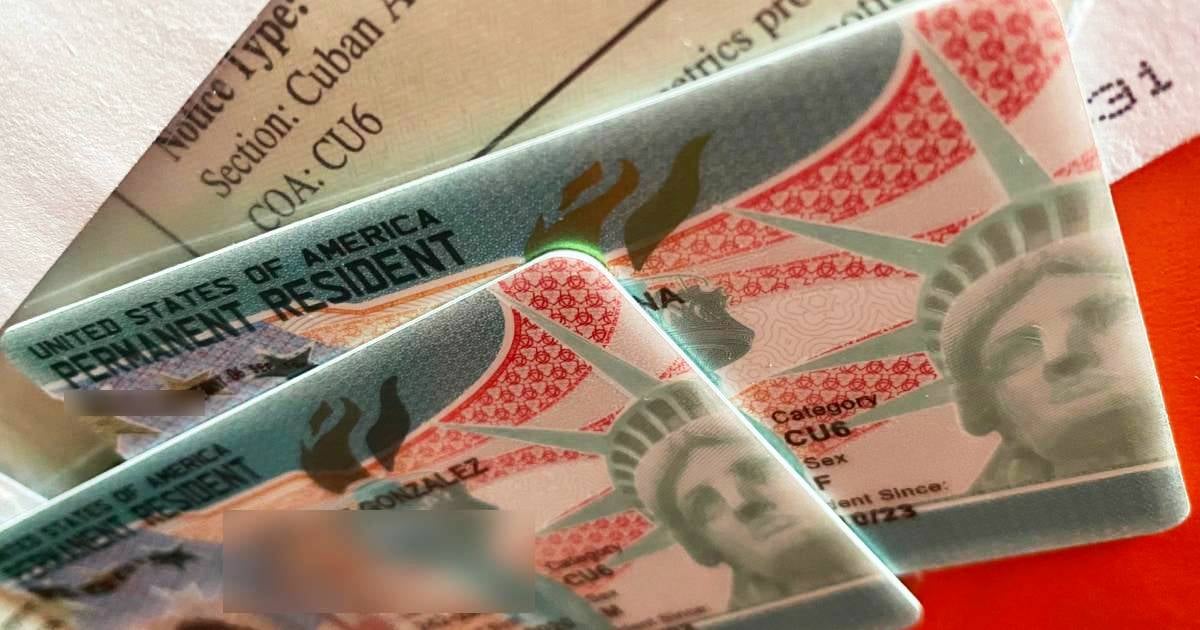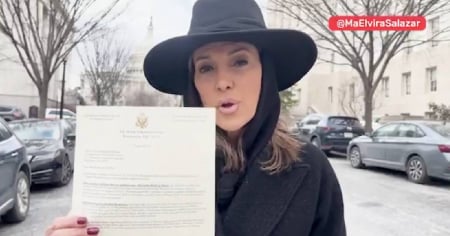
Related videos:
If you are in the process of applying for permanent legal residency in the United States, it is crucial that you are aware of the recent changes made to Form I-485, which is used to adjust immigrant status and obtain the famous "Green Card."
USCIS (United States Citizenship and Immigration Services) has announced significant changes in recent weeks that could impact the way applications are processed. Since October 24, a new form has been made available, which will be the only one accepted starting February 10.
Below, we outline the main changes:
1- Although there are currently three versions of the I-465 form (Adjustment of Status) in effect, starting February 10, 2025, only the version from October 24, 2024 will be accepted.
2- Mandatory medical and vaccination examination along with the application
One of the most notable adjustments is the requirement to submit Form I-693—a medical immigration report—together with Form I-485 if medical and vaccination information is needed. USCIS has clarified that if the medical report is not submitted at the same time as the application for permanent residency, it may be rejected.
Immigration attorney Nelson A. Castillo explained to CNN that, historically, applicants submitted their medical results after sending in their application. However, it is now required that both applications (I-485 and I-693) be submitted simultaneously. This has the advantage that, once submitted, the forms do not expire, which simplifies the process.
"With this new change, you send everything together and there is no expiration. The idea is that everything is processed correctly from the start," Castillo stated. (The Cubans who opted for residency under the Cuban Adjustment Act were already sending the medical exam along with the application).
However, USCIS reported that as of January 22, 2025, it will no longer require the COVID-19 vaccine to be included in the medical examination. "USCIS will not deny any adjustment of status application based on the applicant's failure to provide documentation showing that they received the COVID-19 vaccine," the agency posted on its website.
3- Elimination of Form I-864W
USCIS has decided to eliminate the I-864W Form, which was previously required for certain applicants exempt from submitting an affidavit of financial support. Now, this process will be directly incorporated into the I-485 Form, simplifying and streamlining the application.
Lawyer Castillo emphasized that this modification will simplify the application process, as everything can be completed in one go without the need to submit an additional form.
Clarification of the reason for inadmissibility due to public charge
The I-485 Form has also been modified to clarify the questions related to "public charge," a concept that refers to immigrants who depend on the government for their support. Now, applicants will need to more accurately identify their immigration category, which will allow USCIS to determine if they are exempt from this ground of inadmissibility.
Castillo added that this change aims to reduce confusion among applicants by giving them the opportunity to provide additional information if necessary.
Recommendations and expectations
USCIS has assured that these changes aim to optimize information collection, consolidate requirements, and improve the efficiency of the process. However, immigration attorney Elizabeth Uribe warned that while the changes may simplify some aspects, they will not necessarily reduce processing times.
According to Uribe, the average wait time to obtain a Green Card remains uncertain and may extend from six to twelve months starting February 10.
Additionally, although the new form has 24 pages (instead of the previous 20), Uribe noted that this could reduce the number of requests for additional evidence, as some processes that were previously conducted separately have now been consolidated. However, he warned that if USCIS enforces a stricter policy regarding the lack of documents or evidence, there may be an increase in denials.
Who can apply for a Green Card?
To be eligible to apply for a Green Card, foreigners must meet at least one of the categories established by USCIS, which include:
-Direct relatives of U.S. citizens or permanent residents.
-Qualified employees sponsored by a company in the U.S.
-Refugees or asylum seekers who meet the established requirements.
-Beneficiaries of humanitarian programs.
In the section of "special programs" (page 7), the Cuban Adjustment Act is included, which benefits Cubans who have entered the country legally or have received a parole at the borders.
Frequently Asked Questions About the New Requirements for Obtaining a Green Card in 2025
What are the main changes in the Form I-485 for applying for the Green Card?
As of February 10, 2025, only the version of Form I-485 dated October 24, 2024, will be accepted. Additionally, it is mandatory to submit Form I-693, related to the medical and vaccination examination, along with the application for adjustment of status. The Form I-864W has also been removed, simplifying the process by incorporating its requirements into the I-485.
Is it necessary to present COVID-19 vaccination documentation to adjust status?
No, USCIS has eliminated the requirement to submit COVID-19 vaccination documentation for adjustment of status effective January 22, 2025. This means that applications will not be denied for failing to include proof of COVID-19 vaccination.
What are the implications of eliminating Form I-864W?
The elimination of Form I-864W simplifies the application process for certain applicants by integrating its requirements directly into Form I-485. This makes the process easier and faster by reducing the number of forms that need to be submitted.
Who is eligible to apply for the Green Card under the new requirements?
Applicants must meet at least one of the categories established by USCIS, such as being immediate relatives of U.S. citizens or permanent residents, being qualified employees sponsored by a company in the U.S., or being refugees or asylees who meet the requirements. Also included are beneficiaries of humanitarian programs, such as the Cuban Adjustment Act.
Filed under:





